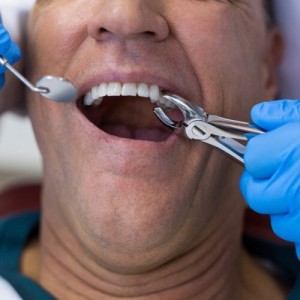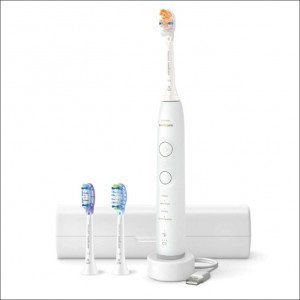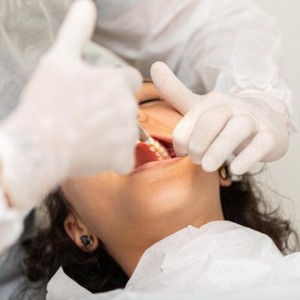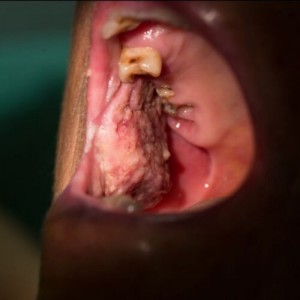
New research identifies a gene that could help fight head and neck cancers with immunotherapy
For people with head and neck cancers, the treatment can sometimes be as challenging as the disease.
Traditional chemo- and radiation therapies can leave patients with long-term disabilities. Because these treatments can create immobility around the face and neck, some patients can’t speak or even eat well after treatment. “You can imagine how painful it would be in daily life if you had to rely on a gastric tube to eat,” says Assistant Professor Dechen Lin, who also serves as the associate director of research at the USC Head and Neck Center.
That’s why newer therapies are being developed to treat head and neck cancers.
One of the major breakthroughs in recent history is the use of immune checkpoint blockade therapy — a type of immunotherapy that uses drugs to block specific proteins (“checkpoints”) on immune cells. “This type of immune system-based therapy really taps into the immune cells and mobilizes them to attack the tumors,”Lin says. “So the real weapon is actually the patient’s own immunity cells”
Despite this new therapy, there are still a sizable number of patients who do not benefit from immune checkpoint blockade therapy.
Using a Patient’s Own Immunity to Fight Cancer Cells
Now, Lin’s new research has identified a specific gene — KMT2C — as a crucial component in regulating tumor-infiltrating, cancer-fighting lymphocyte cells, further enhancing the effectiveness of immune checkpoint blockade therapy.
Lin and his colleagues discovered that this gene acts alongside drugs to activate lymphocytes that fight tumors, potentially improving treatment efficacy in head and neck cancers. The research is published in the Journal of Experimental Medicine.
T-cells, also known as lymphocytes, are really the weapon that can destroy the tumor, Lin says. But most of these lymphocytes do not work very well: “They’re either ‘tired,’ or they’re ‘idle,’” he says. “That’s why immunotherapy is used to mobilize them, to stimulate them to attack the tumor. In this case, we found that this gene actually acts alongside the drug to ‘wake up’ the T-cells to mobilize and signal them that it’s time to attack the tumor.”
Lin was surprised to find this gene was implicated in immune regulation, because it was not previously known. The team used the power of systems biology, with computers analyzing thousands of gene networks to pinpoint the gene, as well as a miniature version of the tumor from both mouse and human tissues to test the gene’s function. The next steps include validating the gene as a biomarker and testing its impact in animal models and patient-specific mini-organ cultures.
“It’s always a good feeling to see a four- or five-year project come to a fruition and recognized by peer review and high-impact journals,” Lin says. “I feel grateful for the patients who contributed by letting us study their tumors.”
The study also shows USC’s strong support of collaborative research in cancer — across the university, Lin says. “Our dedication to increasing knowledge and advancing understanding of cancer biology is unwavering.”
Author: Katharine Gammon
Source: https://dentistry.usc.edu/
 Related articles
Related articles
Products 12 July 2024
Royal Philips, a global leader in health technology, announced new research that found that twice daily powered toothbrushing using the Philips Sonicare DiamondClean Smart toothbrush was...
Editorials 07 October 2025
DDS-ASPIRE: A New Generation of Dental Leaders for California’s Underserved Communities
California lawmakers have approved a $1.8 million grant to UCSF School of Dentistry to support the launch of Doctor of Dental Surgery Advocacy, Science, Public Interest, and Research (DDS-ASPIRE), a...
Periodontology 25 September 2025
Throughout history, education has evolved, and new teaching/learning methods have been developed.
Products 25 September 2025
Philips Sonicare Unveils Next-Generation Sonicare Technology
Delivering a thorough yet gentle clean, the new Philips Sonicare 6300 and 7400 electric toothbrushes empower patients to feel the care, supporting healthier smiles with every use.
Oral pathology 19 September 2025
n this study we investigated the accuracy of diagnoses of oral mucosal diseases made by family physicians (without a dental degree), other categories of physicians, and general dental practitioners...
 Read more
Read more
Implantology 17 October 2025
To investigate whether cross-section imaging influences the planning and therapy of standard implant cases in the posterior mandible.
Editorials 17 October 2025
In her new role she is providing direction and supporting initiatives that elevating UFCD's translational research agenda.
Products 17 October 2025
Presto Dental, a new brand affiliated with the Abra Health Group, proudly announces the grand opening of its flagship Connecticut location in Bridgeport. This state-of-the-art.
News 17 October 2025
The American Association of Oral and Maxillofacial Surgeons (AAOMS) celebrated the achievements of more than 30 individuals at the association’s 107th Annual Meeting, Scientific Sessions and...
Phenom, an applied AI company that helps organizations hire faster, develop better, and retain longer, announced The Aspen Group (TAG) earned the Brandon.















